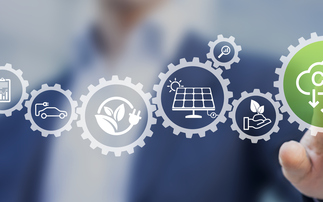Andrew Horstead, risk analyst at Utilyx, outlines how organisations can benefit from renewable power purchasing agreements
The UK government assured the EU in its Renewable Energy Strategy that 30 per cent of UK electricity will come from renewable sources by 2020. This is a significant increase from the current level of just...
To continue reading this article...
Join BusinessGreen
In just a few clicks you can start your free BusinessGreen Lite membership for 12 months, providing you access to:
- Three complimentary articles per month covering the latest real-time news, analysis, and opinion from Europe’s leading source of information on the Green economy and business
- Receive important and breaking news stories via our daily news alert
- Our weekly newsletter with the best of the week’s green business news and analysis






